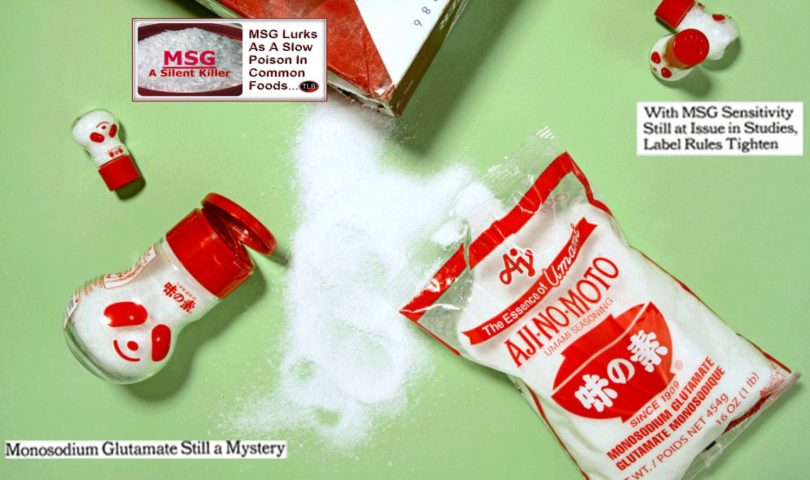In 1968, the New England Journal of Medicine published a letter from a supposed Chinese physician named Kwok who described a series of reactions he experienced after eating Chinese food. “Dr. Kwok” (who is believed to have been a white, American scientist lying about his identity in order to sound more credible) experienced “numbness at the back of the neck radiating down both arms and back, palpitations and general weakness.” The NEJM deemed these reactions “Chinese Restaurant Syndrome,” which was caused by ingesting glutamic acid or it’s derivative monosodium glutamate, commonly referred to as MSG. After the publishing of this article, many began to report their own experiences of malaise after consuming MSG. Thus, the anti-MSG movement was born.
Between 1968 and 1990, 19 studies were conducted surrounding human reaction to MSG. When objective criteria such as skin temperature, blood pressure and heart rate were measured among those who claimed to react to MSG and those who didn’t (New Scientist, 1994). Chemist Leonid Tarasoff at the University of Western Sydney in Australia notes that the reaction often assigned to MSG is most likely a reaction to histamines that form during the fermentation of common ingredients in Chinese food, and labels MSG a “scapegoat”. In a study led by Tarasoff, participants were given foods and beverages that contained MSG, but also contained masking flavors, such as a daily beverage that was masked by a grapefruit flavor. Participants were additionally given a capsule containing either a placebo, one and a half grams of MSG, or three grams of MSG. Tarasoff reports that none of the subjects reported any sort of sensitivity to the food given to them during the study.
Over the years, conspiracy theorists and health junkies alike have labeled MSG as a neurotoxin, a carcinogen, and an ingredient with the capacity to cause autism. None of this is true. MSG is a naturally occurring compound that occurs in seaweed, tomatoes, yeast, and soy. In fact, in my experience experimenting with MSG over the past few weeks, I have found that yes, if you eat too much, you will get a headache. But that sentiment also applies to salt, and other sodium-rich foods. This reaction isn’t principally caused by the MSG, but rather it’s sodium content. While it is definitely not something I believe one should consume daily, I firmly believe that if consumed in moderation, MSG causes no harm to the body or mind.
Overall, MSG is a perfectly safe seasoning that adds a rich, umami flavor to meats and vegetables.I would 100% recommend trying MSG in a sauce, soup, meat rub, or grain bowl. It helps to add depth to your food and is an excellent alternative to the one-dimensional flavor of salt. While many conspiracy theorists and health gurus alike can try to label MSG toxic, science has continually proven their claims false, and will continue to do so in the future.

